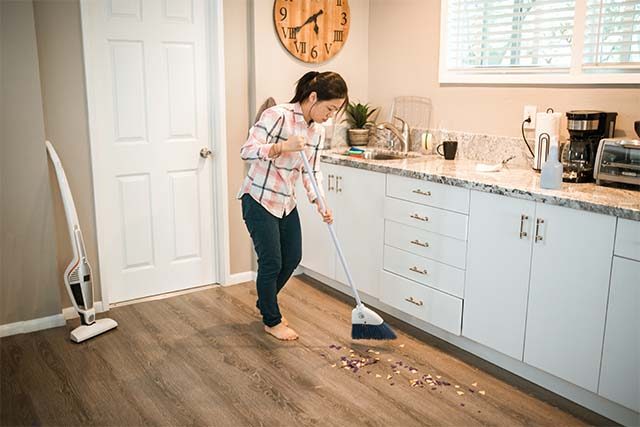Dusting and sweeping are among the most stressful cleaning tasks in the Philippines, according to a data gathered by house cleaning portal Cleanipedia.
The nationwide data was based on the proportion of more than 800,000 cleaning-related tweets analyzed last month. It used keywords and geotagged tweets that were classified as “stressed” using a sentiment analysis tool and gender classifier tool.
“We analyzed each tweet with TensiStrength, an academic tool that detects stress levels in short pieces of text based on the tool’s classification of words. Tweets were classified as stressed using the following numerical scale: -1: no stress, -2: low stress, -3 moderate stress, -4: high stress, -5: very high stress,” Cleanipedia explained.
It revealed that 32.1% percent of Twitter users surveyed experienced stress because of dusting, while 30.4% users were stressed because of sweeping, followed by polishing (29.6%), vacuuming (28.8%) and laundry (27.1%)
Those who were the most stressed when it comes to tidying were highest in Capiz at 38.3%. Residents from Metro Manila placed last on the list with 34.5%.
Some Twitter users (37.4%) said the most stressful room to clean is the bedroom while tidying the bathroom ranked second at 31%.
It also showed that men are more likely to complain about cleaning than women, with 67% of tweets from the former and 33% of tweets from the latter.
Clutter from an untidy living space is linked to high stress levels, according to a research study.
Cleaning hacks
Regina Ocampo from Cleanipedia said the key to lessen the burden of tidying is to “take on small and manageable tasks from day to day.”
“Small, very manageable tasks you can do include making your bed each morning, wiping down surfaces, and cleaning up after yourself, for example putting things away when you’ve finished with them and putting dirty laundry in the basket,” she said in a statement.
Ocampo emphasized that the best way to divide chores is to make a cleaning schedule.
“Have an honest discussion as a family or with your partner about how and when the house should be tidied. One tried and tested method is drawing up a cleaning rota that tells each member of the household what they need to do and when,” Ocampo said.
“Change this up frequently so the tasks don’t get too boring. If there’s a task that one person particularly doesn’t like, let them trade with others,” she added.
The house cleaning portal’s representative also urged parents to encourage children in doing cleaning tasks as part of their daily routine.
“Don’t criticize any mistakes your kids make when tidying – they’ll learn much better with encouragement. You may also want to motivate your kids to tidy by rewarding completed chores with incentives like pocket money,” she maintained.
Cleanipedia is the housekeeping and cleaning tips website of Unilever, the global consumer goods giant.




